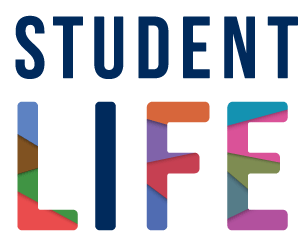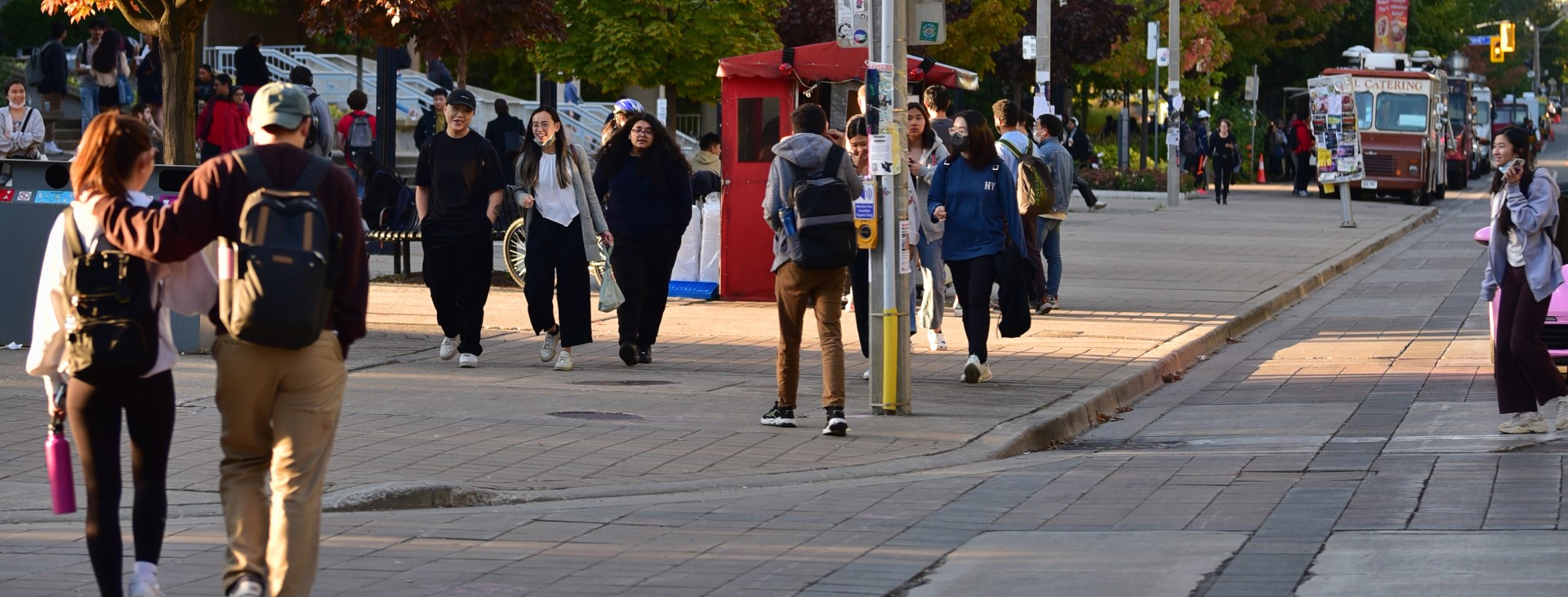ASD Peer Connections for Women & Trans Students
An informal space for students to connect and discuss topics relevant to their disability. Find community, share strategies to build resilience and be yourself!
Peer Connections are facilitated by peer facilitators from Accessibility Services. An accessibility advisor and/or program coordinator will be there to support.
This program is open to all women and trans students who self-identify as having Autism Spectrum Disorder (ASD). No formal diagnosis is required.
If this is your first time joining ASD Peer Connections, please review the group guidelines and fill out the ASD Peer Connections for Women & Trans Students sign up form.
ASD Peer Connections for Women & Trans Students provides women and trans students with Autism Spectrum Disorder (ASD) an informal space to connect and discuss topics relevant to their disability and identity.
The program is facilitated by an accessibility advisor and peer.
Upcoming ASD Peer Connections for Women & Trans Students sessions
Offered once a month.
Register through the following links on Folio:
June
July
August
- Wednesday, August 13, 10:30 – 11:30 a.m. (in person)
- Wednesday, August 13, 10:30 – 11:30 a.m. (virtual)
ADHD Peer Connections
An informal space for students to connect and discuss topics relevant to their disability. Find community, share strategies to build resilience and be yourself!
Peer Connections are facilitated by peer facilitators from Accessibility Services. An accessibility advisor and/or program coordinator will be there to support.
This program is open to all students who currently have a diagnosis of ADHD or suspect that they do.
ADHD Peer Connections provides a space to connect with other students with Attention Deficit Hyperactivity Disorder (ADHD). Find community, share strategies to build resilience and be yourself!
In each session, you will have opportunities to share experiences about living with ADHD in a group setting and listen in on discussions. This program takes place once a month in person.
Upcoming ADHD Peer Connections sessions
On pause for Summer 2025.
Social Association for Students with ASD
The Social Association for Students with ASD (SASA) provides students with Autism Spectrum Disorder a chance to connect and develop new friendships.
The group meets up to play board games and enjoy light snacks, and plans occasional outings based on mutual interests. There are also options for solo activities.
Email as.learning@utoronto.ca to join the SASA listserv.
This program is open to undergraduate and graduate students registered with Accessibility Services who identify as a student living with ASD.
SASA hosts an event twice a month during the fall and winter semesters. One event is hosted fully in person and the other fully online.
Join in on the games, sit back and watch others play, or simply engage in the event chat.
Upcoming Social Association for Students with ASD sessions
Register through the following links on Folio:
- May 23 (Virtual)
- May 30 (In Person)
- June 20 (Virtual)
- June 27 (In Person)
- July 18 (Virtual)
- July 25 (In Person)
To join the SASA listserv and receive updates for upcoming social events, email as.learning@utoronto.ca.
Registration is required. Check out upcoming events and register on Folio.
Dragon’s Den: Video and Board Games Club
Meet other students with disabilities and students registered with Accessibility Services in an informal space to connect and develop new friendships. Play games and make conversation or sit back and watch others play.
Some board games will be provided, but you are welcome to bring any board games and/or video games of your own.
Open to all undergraduate or graduate students currently registered with Accessibility Services or who identify as living with a disability.
Be respectful
The aim is to create a welcoming and safe environment. Please treat everyone with respect. Different points of view and healthy debates are natural, but respect is required.
No discrimination and harassment
We want to make sure everyone feels safe. Bullying, discrimination and harassment are not permitted, and degrading comments about people and displays of discrimination or harassment on the basis of race, ancestry, place of origin, colour, ethnic origin, citizenship, creed, sex, sexual orientation, gender identity, gender expression, age, marital status, family status, disability, or receipt of public assistance or record of offences will not be tolerated.
Respect everyone’s privacy
Participating in this group (and discussion activities) requires mutual trust. Authentic sharing and dialogue add to an engaging group experience and opportunity for connection, but may also include information that is sensitive and private. Private information shared in the group session/dialogue should stay among the session participants to respect everyone’s privacy.
Program facilitators will provide support and guidance to participants as needed to maintain a welcoming environment for diverse group members. Any member who has concerns and feels unsafe/unwelcome at any time is encouraged to let the program facilitators know as soon as possible.
Upcoming Dragon’s Den: Video and Board Games Club sessions
On pause for Summer 2025.





